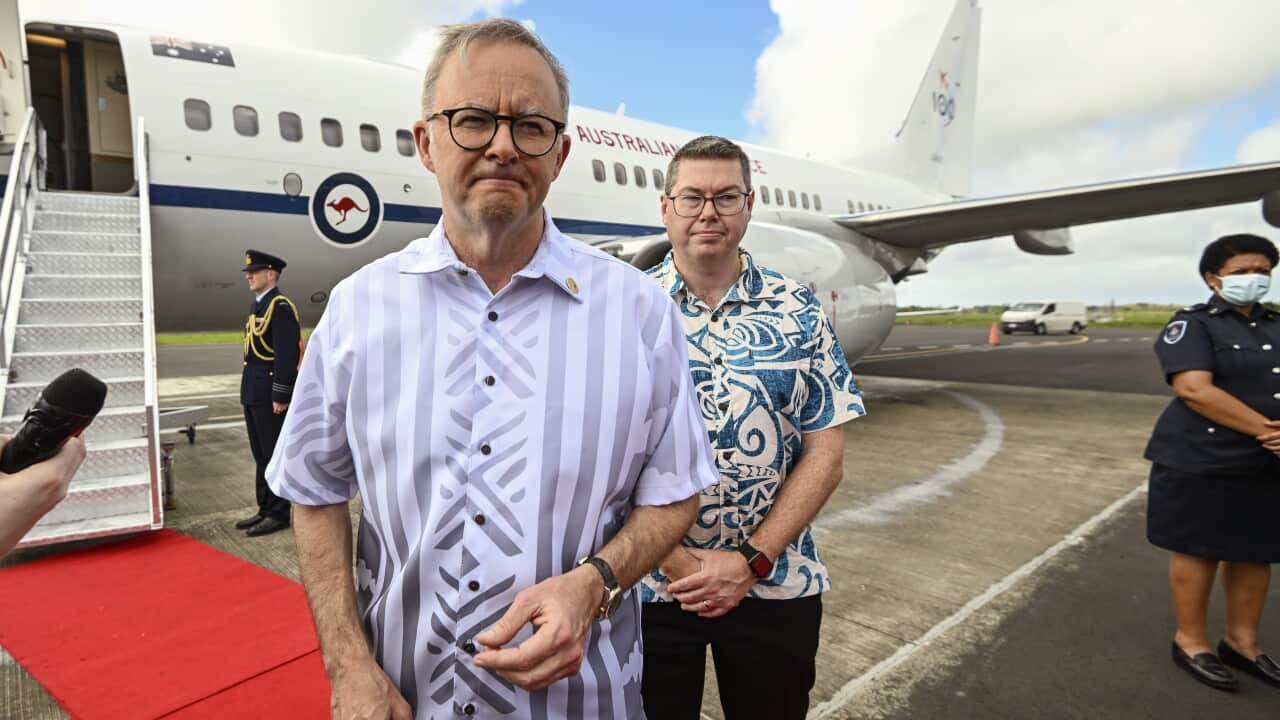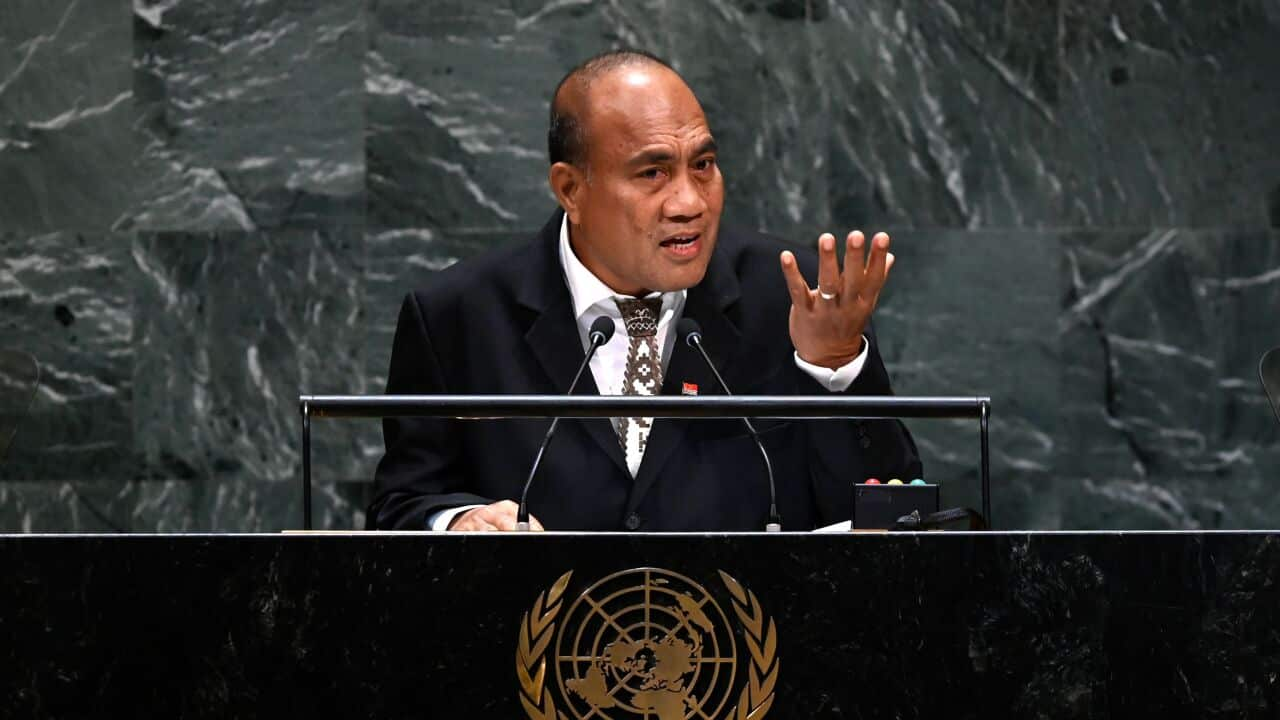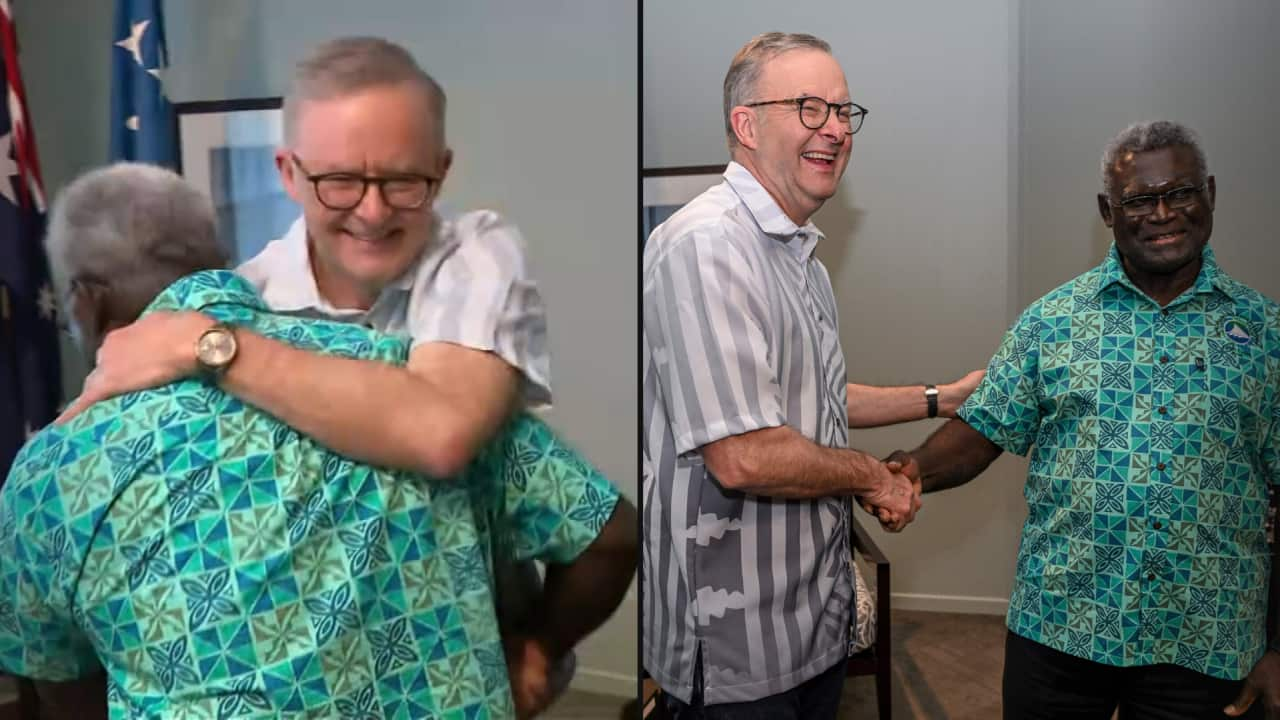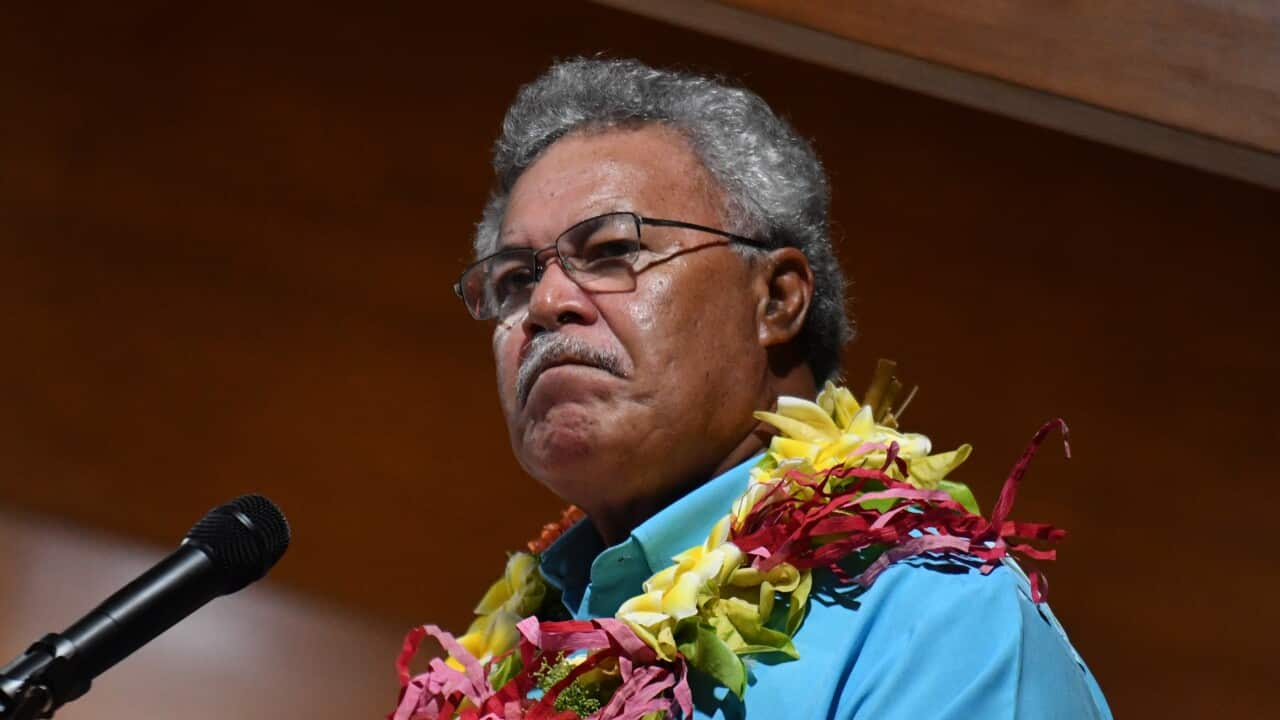Key Points
- Leaders enter ultimate day of the Pacific Islands Forum.
- Pacific Island nation leaders press Australian government over climate action.
Crunch time has arrived at the Pacific Islands Forum, with leaders heading into an all-day closed-doors meeting to thrash out regional issues.
Prime Minister Anthony Albanese will attend his first leaders' retreat on Thursday along with 13 other forum leaders in the Fijian capital of Suva.
The day will start with the traditional family photo, when leaders don a shirt designed by the hosts in the most recognisable moment of the annual event.
Then the leaders will get down to business for the secret talks, with seven hours currently scheduled.
The retreat has a reputation for being unwieldy and unpredictable, given the difficulties of reaching consensus with so many leaders in the room, each with different agendas.
At the last gathering in 2019, it was Australia that proved intransigent.
Pacific nations, living under threat of climate catastrophe, pushed for wording in the final communique taking aim at coal use, and wanted a commitment to keeping global warming under 1.5 per cent.
According to other leaders, former Coalition prime minister Scott Morrison pushed back during a 12-hour marathon meeting - pushing Tonga's prime minister to tears.
Fiji Prime Minister Frank Bainimarama later described the meeting as "one of the most frustrating days I have ever had".
"The prime minister was very insulting, very condescending, not good for the relationship," he told The Guardian at the time.
Tuvalu Prime Minister Enele Sopoaga, who played host to the 2019 meeting, accused Australia of only being "concerned about saving your economy".
"I'm concerned about saving my people in Tuvalu and likewise the leaders of other South Pacific small island countries," he said.
The Australian government's new climate stance - including headline targets of a 43 per cent cut in green house gas emissions and 82 per cent renewable energy generation by 2030 - has been welcomed by Pacific leaders.
However, that doesn't mean climate won't again be a sticking point, given the urgency of the matter in the Pacific.
"The number one issue for them is, of course, climate change, because it's a threat to their very existence," Mr Albanese told Nine Network on Thursday.
There are other issues that could threaten Mr Albanese's international relations honeymoon.
Australia's bid for a nuclear submarine fleet could meet resistance, given the anti-nuclear stance of many in the region formalised through the Treaty of Rarotonga.
A growing band of Pacific nations have also called for a moratorium on deep sea mining, an issue which if raised could expose differing views.
Privately, officials expect - and hope - for a smooth meeting, after disaffected Micronesian nation Kiribati withdrew from the forum on the eve of the summit.
Still, regional unity, and regional security, will be a major talking point in the wake of Solomon Islands' security tie-up with China, which raised fears in Australia and New Zealand of Chinese militarisation in the Pacific.
"What we need to do ... is make clear what Australia's interests are, and obviously the interests of Australia would not be served by having a military base so close to where Australia is," Mr Albanese said of the Solomon Islands issue.
Australia and New Zealand are pushing Pacific Islands leaders to follow previous pledges and look first to them for security arrangements.
Forum chair Fiji also hopes the retreat will rubber-stamp a new long-term plan for the region, the 2050 Strategy for the Blue Pacific, which has been the major effort of its year as chair.
The meeting is also set to confirm Solomon Islands as the next chair and host of the 2023 gathering.




